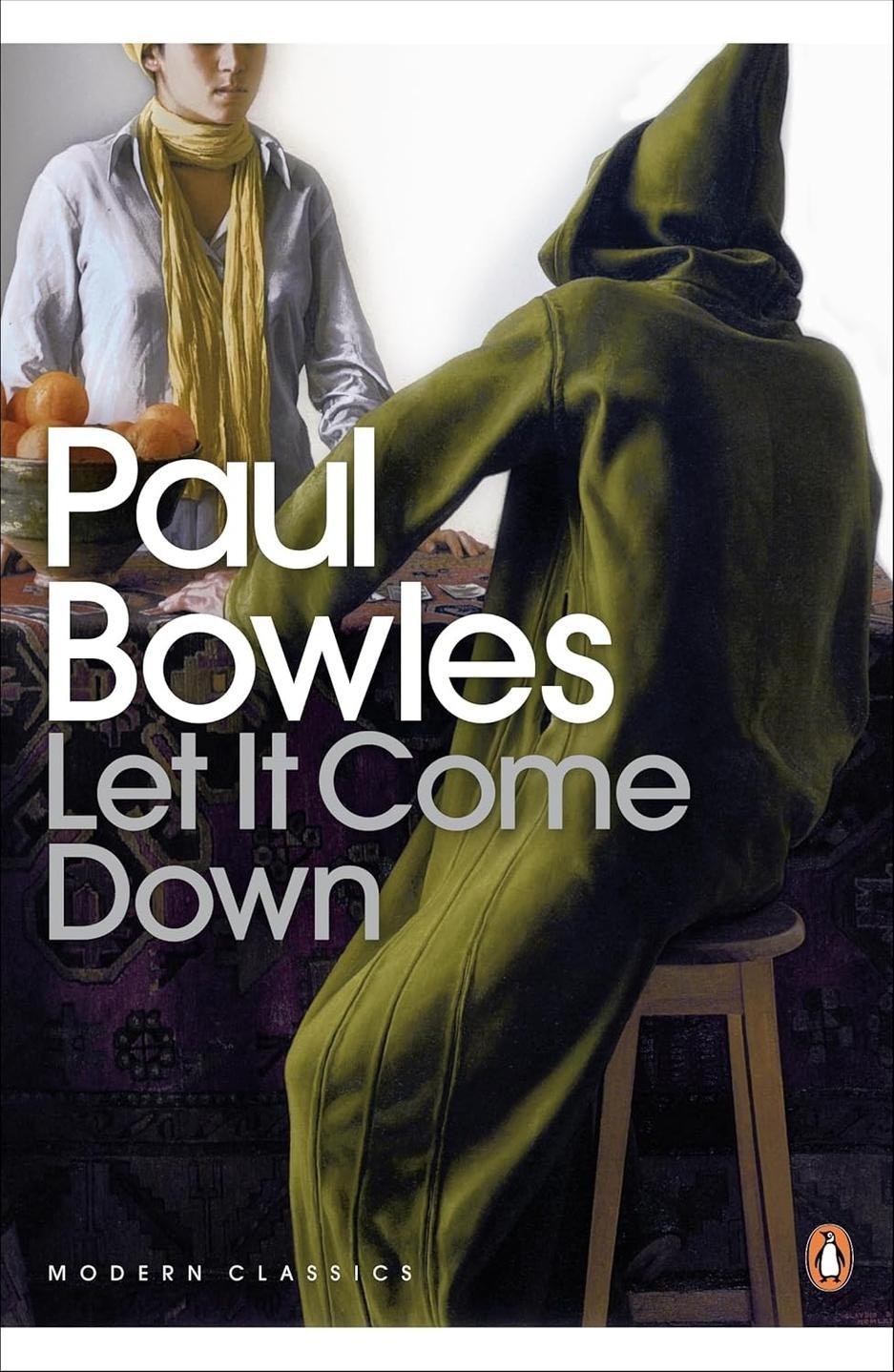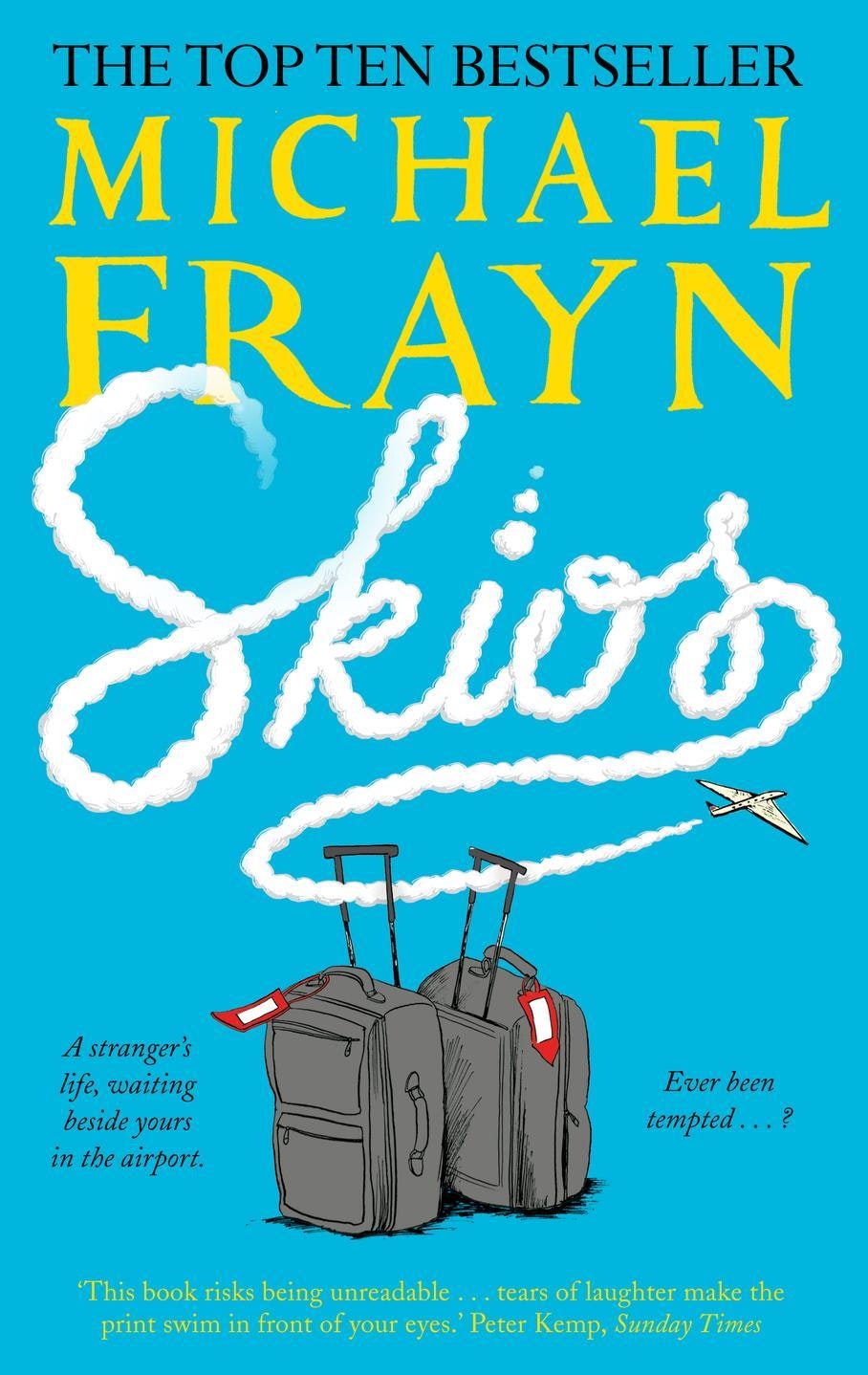This article is taken from the August-September 2025 issue of The Critic. To get the full magazine why not subscribe? Right now we’re offering five issues for just £25.
As is traditional ‘round these parts, for this summer double issue we disdain the new and modish — and relieve you of the weight of hardbacks in your hand luggage — in favour of tried and tested literary treats. In a world where every publisher and his dog is unearthing out-of-print books for a new audience, even “modern classics” now need some triage.
The theme this year is travel, and the first title comes from one of literature’s great travellers. Paul Bowles moved to Tangier, Morocco, in his late 30s and set all his major fiction in north Africa. He remains best known for his debut The Sheltering Sky (1949), but all his novels are worth visiting, and they share a dark quality: if, as Graham Greene said, a writer must have a splinter of ice in his heart, then Bowles had a splinter of heart in his ice.
You can tell from the title that Bowles’ 1952 novel Let It Come Down will not be a comedy: it uses the words of one of Banquo’s murderers in Macbeth as they set about the deed. The story concerns American Nelson Dyar, who has come to Tangier for a new job. “He was really here now; there was no turning back. Of course there never had been any question of turning back.”

At the time the story is set, Tangier is a multicultural International Zone, “where you could get anything you wanted if you paid for it”. This transactional culture enables Dyar to become involved with the other expats. There’s Daisy, who adores the sea (“I must be able to see it. Always”), though Dyar finds her fatuous; Eunice, who sleeps with a local girl called Hadija and is consumed with jealousy when Hadija also sleeps with men and there’s Wilcox, who will become central to Dyar’s life.
Wilcox is involved in smuggling and sees Dyar as a useful patsy. This positioning makes sense, since Dyar is both short of money and largely a passive recipient of his own life. “Things don’t happen, he told himself. You have to make them happen. That was where he was stuck. It was not in him to make things happen; it never had been.” But he is not quite at the bottom of the food chain. “It would be pleasurable to sit beside Daisy and worry her,” he thinks and, in the end, goes one better, by sleeping with Hadija whilst Daisy listens from the next room. She experiences “only a dimly satisfying pain”.
As indicated above, there is a plot here, one that is spiral-shaped like the pull of a whirlpool, but Bowles is primarily a writer of atmosphere, and that is what makes his work so perfect for holiday reading — you can be in two places at once.
He excels at pen portraits: a Moroccan local who “was a man of thirty-five (which meant he looked fifty)” or Luis, magnificently summarised thus: “a thin and dramatically dark Spaniard who wore an opera cape and handled it as arrogantly as a matador his muleta, who was rude to everyone without being actually offensive, who used incredibly obscene language and yet managed to remain very much a gentleman.”
Everything here, to Dyar, is vivid yet not quite understandable: foreign, in other words. Added to the atmosphere and the characters, there is meaty stuff on masculinity and femininity and the great question: how should we live? Yet there is also entertainment as clear as that which Daisy seeks from her surroundings: “Why do you think I have a good pair of Zeiss field glasses in my bedroom, darling?”
And if it’s true that here, “going to pieces is inevitable, and you haven’t even any pieces to show when you’ve finished”, then the reader, safely distant, will have a perversely good time watching it happen.
If Let It Come Down is not a comedy, then Michael Frayn’s Skios (2012) most definitely is and one of the brightest and bounciest I’ve read. It is essentially a farce, and Frayn has much experience in the form: on stage (Noises Off), on screen (Clockwise) and in print (The Russian Interpreter; The Trick of It).

And, this being Frayn’s most recent novel, published when he was a mere stripling of 79, he brings all the force of his comic experience to bear. Indeed, this novel is Frayn at his most plainly crowd-pleasing, with spiritually more in common with the art-world romp of Headlong than the earlier satires such as The Tin Men or Sweet Dreams.
Skios is a mistaken-identity novel, though only one of the two men involved knows that his identity is mistaken. Dr Norman Wilfred is an academic invited to a conference on the Greek island of Skios to give a lecture on “Information and Governance — the Science of Scientometrics”.
Oliver Fox, a younger man, is there too. Oliver is a man of some renown — for what, we don’t quite know — and relishes the idea of getting away. Even strangers, he finds, know him before they meet him, “waiting for him to be Oliver Fox in front of them”. He already plans to escape his usual life on Skios — through an assignation with a woman who is not his girlfriend — but then a greater change presents itself, first by accident (he takes the wrong suitcase) and then by design (he accepts a lift from someone who thinks he’s Norman Wilfred).
Through this simple switcheroo, Norman is believed to be Oliver, and Oliver is mistaken for Norman. Oliver enjoys his new identity — “He felt as if he had moved into a spacious new house” — whilst Norman doesn’t even know that people think he’s Oliver, as he mistook the name for an imaginary Greek word — phoksoliva — and responded anyway with a nod. This sets in train a series of catastrophes with the staff at the foundation where Norman is delivering his lecture and with Oliver’s other other woman Georgie, who has turned up on the island to surprise him.
This being a farce, naturally sex is high in the mix, with not only Oliver, Norman and Georgie getting involved but even the staff at the foundation. Of course, all of this has a rank implausibility — but it does not so much suffer from this quality as boast it.
Like a ghost story, a farce comes with reader expectations which must be fulfilled. So when one of the themes of the novel is how we collaborate in our own deception — as the foundation members allow Oliver to pretend to be Norman — then we realise that that is what the reader is doing too.
Frayn has always been a writer unafraid to exhibit cleverness, and Skios is an intricate mesh of interlocking viewpoints that the reader must keep a tight hold of, always remembering what each character knows and doesn’t know. It’s about how little we often say when we communicate, as Oliver finds it frighteningly easy to pass himself off as an expert in scientometrics (whatever that is) as long as people are willing to believe he is.

As with Headlong, Frayn knows here that anticipation is the greater part of pleasure, and the story ratchets into higher and higher gears for most of its length. Eventually it must blow, but until then, “the world was bright, the world was good, the world was downhill again”.
No reader’s holiday would be complete without a little light crime, and Georges Simenon’s Maigret novels will do nicely. There are 75 to choose from — a mere drop, however, of the hyper-prolific Simenon’s total output of hundreds of books — so why not go for one where Inspector Jules Maigret himself is on holiday?
In Maigret’s Holiday (1948) we get all the pleasures of the series but for one element. The rich meals that Mme Maigret reliably prepares for her husband, and over which he cogitates on his latest criminal inquiry, are absent here. That is because, whilst the Maigrets are on holiday in the seaside resort of Les Sables-d’Olonne, Mme Maigret becomes ill — appendicitis — and is in a hospital bed for most of it.
Still, Maigret will not be bored, as the resort has obligingly provided a death or two. The first comes when a young woman, Lili, is flung from a car, its door open as it rounds a fast corner. Lili lived with her sister and brother-in-law, and it’s the husband — Dr Bellamy — who attracts Maigret’s attention. The second death is less ambiguous: a woman strangled in her bed at night.
To go into the plot in more detail would be invidious, but it’s a satisfying one, both in conclusion and in how Simenon meets his standard of writing a “pure” novel which is “too tense for the reader to stop in the middle and take it up the next day”.
Anyway, with Maigret the story is only part of the pleasure. As with Paul Bowles, it’s in the atmosphere. This is a world of downing a glass of wine in a cafe, of crimes passionnels and where you can ring the local examining magistrate and ask him to skip his long lunch and come round to help you finalise your murder enquiries.
Maigret is in his element throughout, even without Mme Maigret’s meals. On this busman’s holiday, he feels “intoxicated” by the smells of the leather shoulder holsters and the wool of the uniforms in the police station. He has gone away, only to come home.












